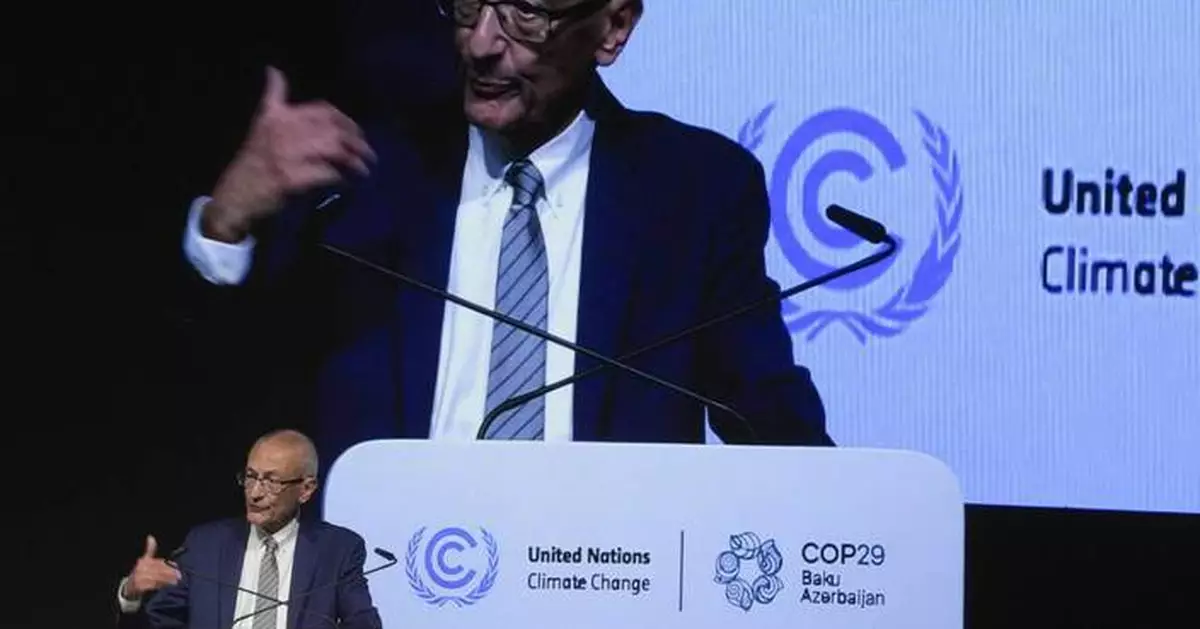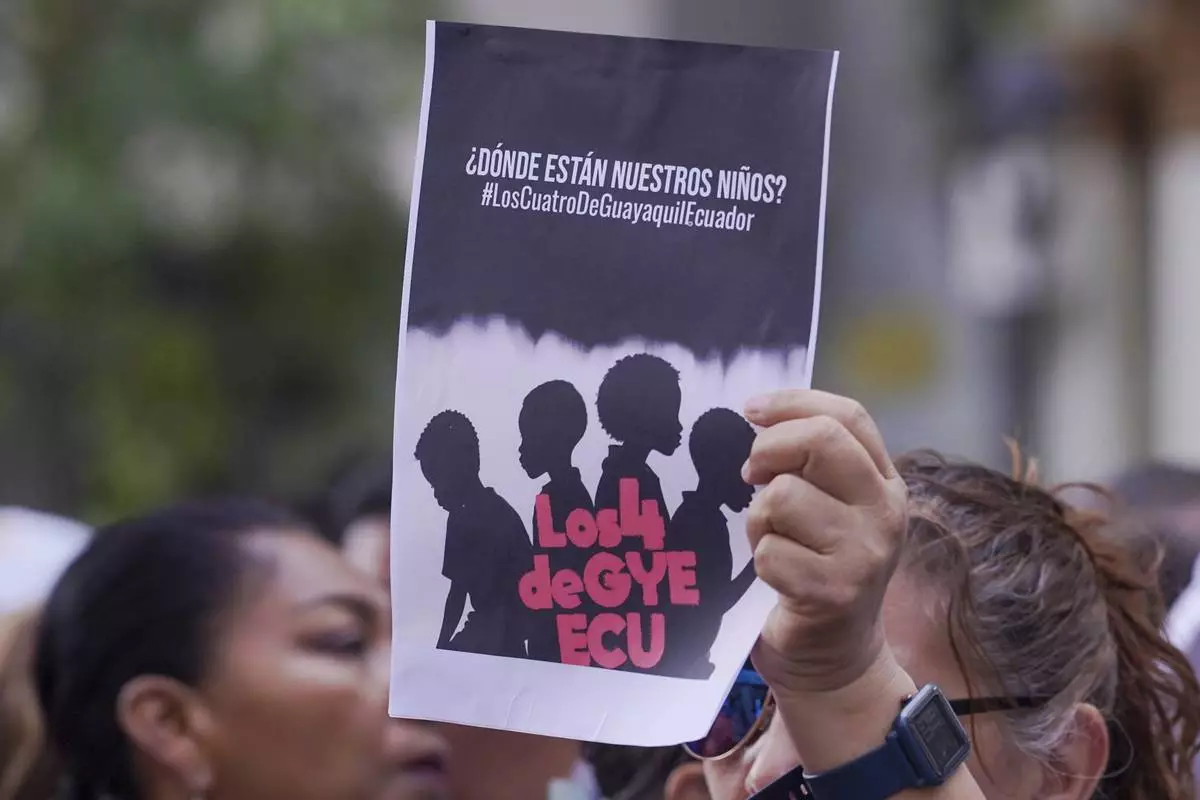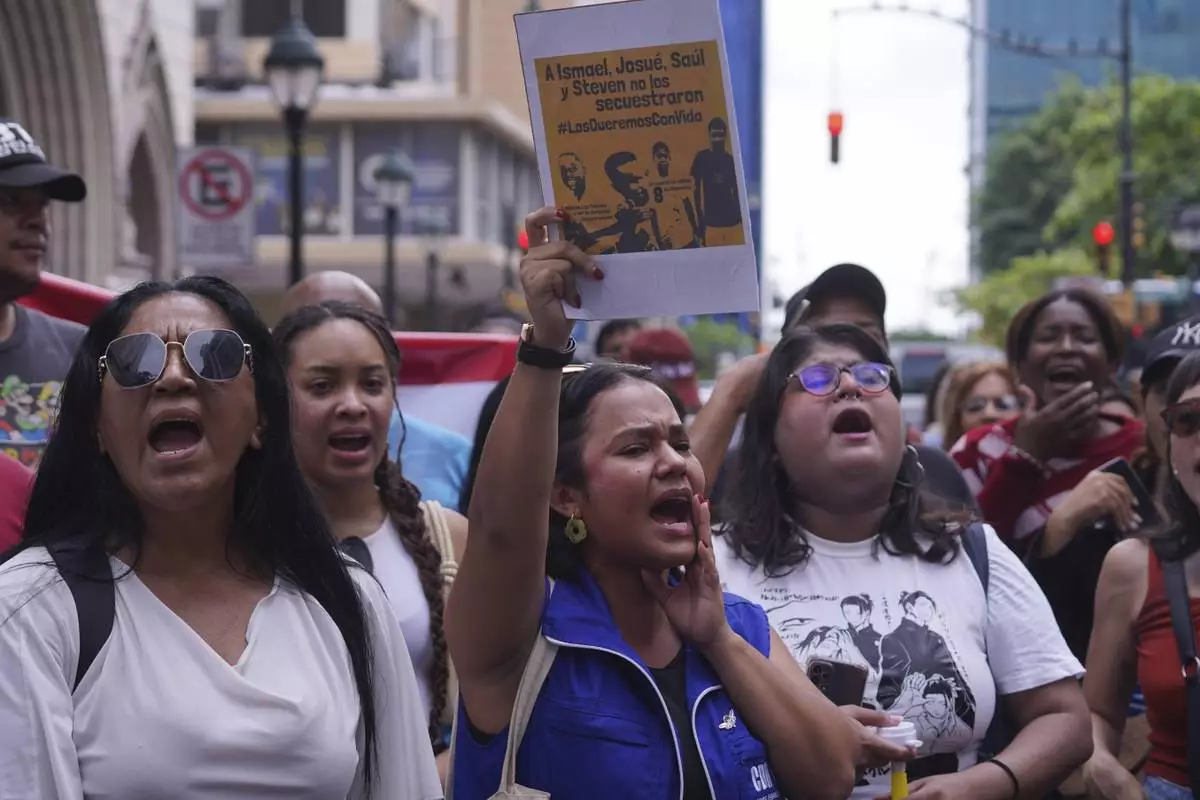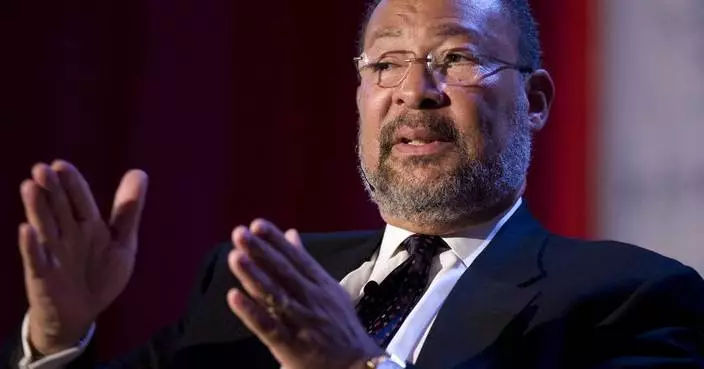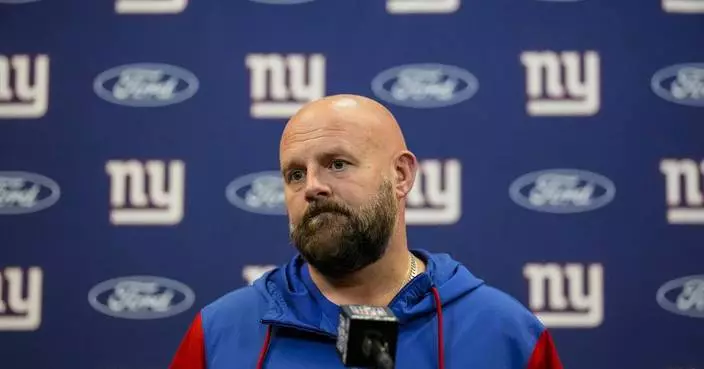BAKU, Azerbaijan (AP) — No matter what kind of U-turn President-Elect Donald Trump will make on climate change, America's clean energy economy won't reverse into the dirty past, a combative but “bitterly disappointed” top American climate negotiator said Monday.
During the first day of the U.N. climate talks, COP29, Climate Adviser John Podesta struck a defiant but realistic tone in a press conference. He said Trump will likely pull the United States out of the landmark Paris Agreement and try to roll back many of the Biden Administration's signature climate moves, including the 2022 Inflation Reduction Act that included $375 billion in climate spending.
“Are we facing new headwinds? Absolutely. But we won’t revert back to the energy system of the 1950s. No way,” Podesta said.
“Setbacks are unavoidable, but giving up is unforgivable,” Podesta said paraphrasing a Biden speech last week. “This is not the end of our fight for a cleaner, safer planet. Facts are still facts. Science is still science. The fight is bigger than one election, one political cycle in one country. This fight is bigger, still, because we are all living through a year defined by the climate crisis in every country of the world.”
During the campaign, Trump said would pull America from the Paris Agreement, rollback parts of the IRA and increase drilling and oil production. He has called emissions regulations part of a “green new scam” and claimed, without evidence, that offshore wind turbines harm whales.
During Trump's first administration, between 2017 and 2021, many environmental regulations were rolled back, later to be reversed by the Biden administration. The incoming Trump administration has signaled it plans to now undo Biden's changes.
During his press conference, Podesta ran through a shopping list of climate disasters, starting with the hottest day recorded, July 22, continuing with floods, hurricanes and droughts.
“None of this is a hoax. It is real. It’s a matter of life and death,” Podesta said. “Fortunately, many in our country and around the world are working to prepare the world for this new reality and to mitigate the most catastrophic effects of climate change.”
Podesta said the Biden administration is still negotiating even as it prepares to leave.
“We are here to work, and we are committed to a successful outcome at COP29," Podesta said. “We can and will make real progress on the backs of our climate committed states and cities, our innovators, our companies and our citizens, especially young people who understand more than most that climate change poses an existential threat that we cannot afford to ignore.”
Another senior U.S. official, who spoke on the condition of anonymity, said other countries are still working with American diplomats because they care what the U.S. thinks and any agreement struck here must be by consensus. Outside analysts had speculated the U.S. would be ignored.
“In January, we’re going to inaugurate a president whose relationship to climate change is captured by the words ‘hoax’ and ‘fossil fuels’,” Podesta said. “He’s vowed to dismantle our environmental safeguards and once again withdraw United States from the Paris Agreement. That is what he said. And we should believe him.”
The Associated Press’ climate and environmental coverage receives financial support from multiple private foundations. AP is solely responsible for all content. Find AP’s standards for working with philanthropies, a list of supporters and funded coverage areas at AP.org
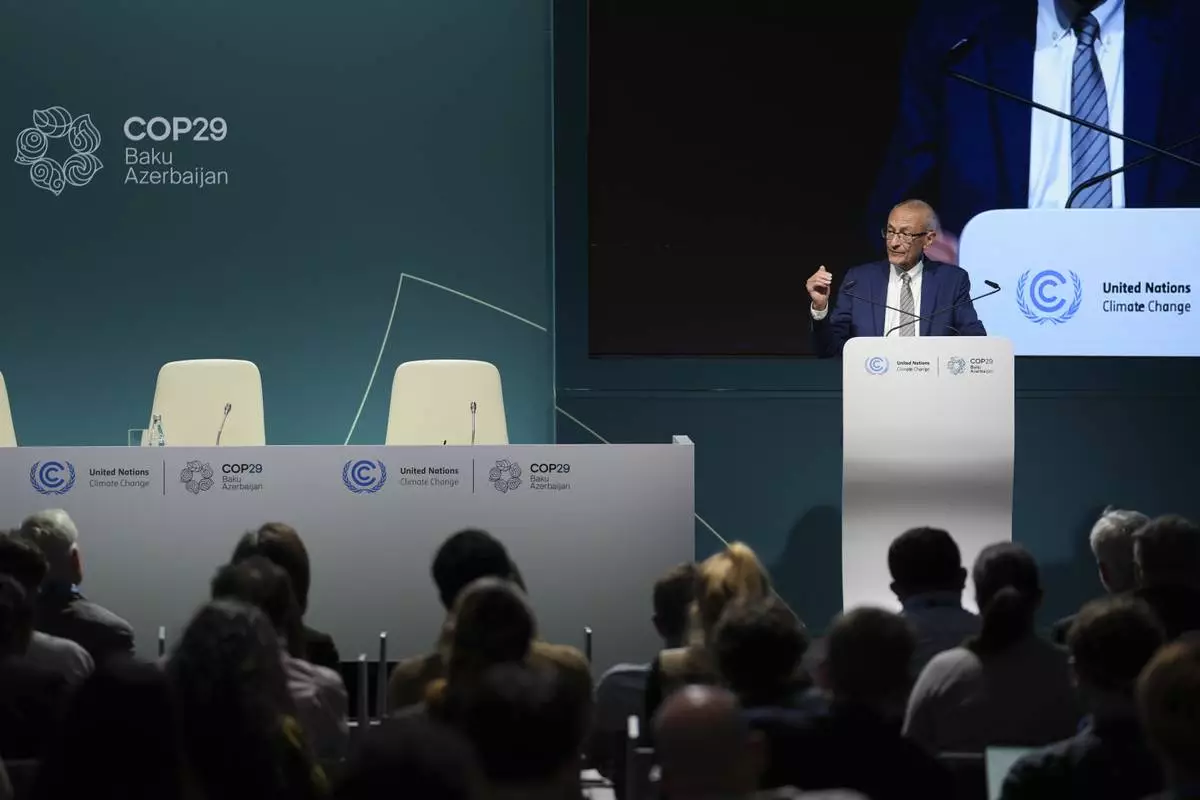
John Podesta, U.S. climate envoy, speaks during a news conference at the COP29 U.N. Climate Summit, Monday, Nov. 11, 2024, in Baku, Azerbaijan. (AP Photo/Joshua A. Bickel)
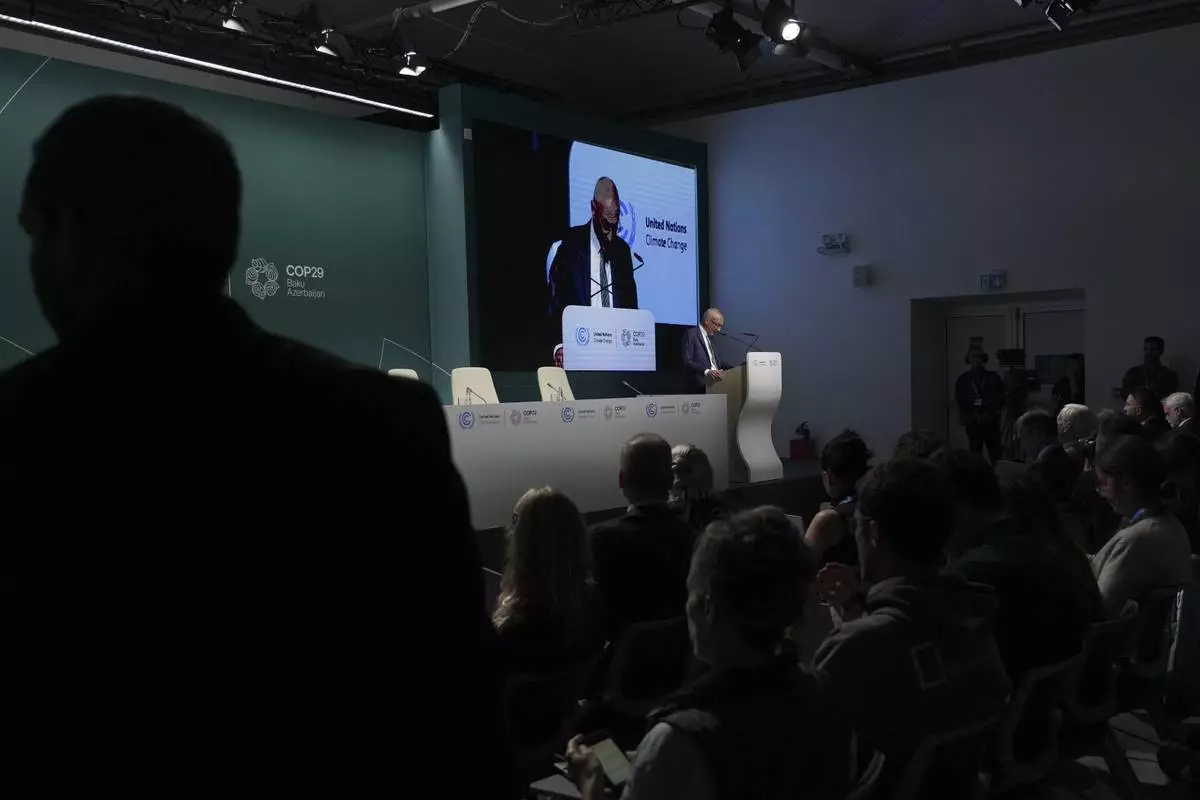
John Podesta, U.S. climate envoy, speaks during a news conference at the COP29 U.N. Climate Summit, Monday, Nov. 11, 2024, in Baku, Azerbaijan. (AP Photo/Joshua A. Bickel)
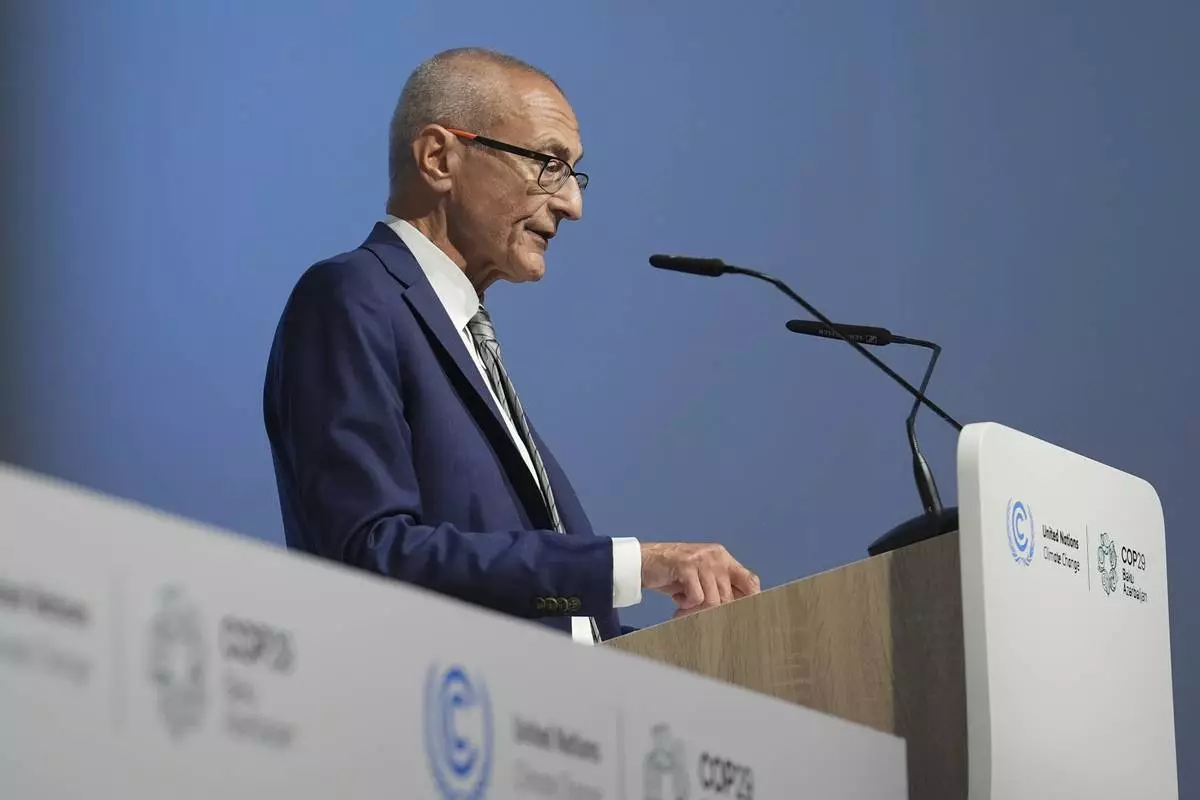
John Podesta, U.S. climate envoy, speaks during a news conference at the COP29 U.N. Climate Summit, Monday, Nov. 11, 2024, in Baku, Azerbaijan. (AP Photo/Joshua A. Bickel)
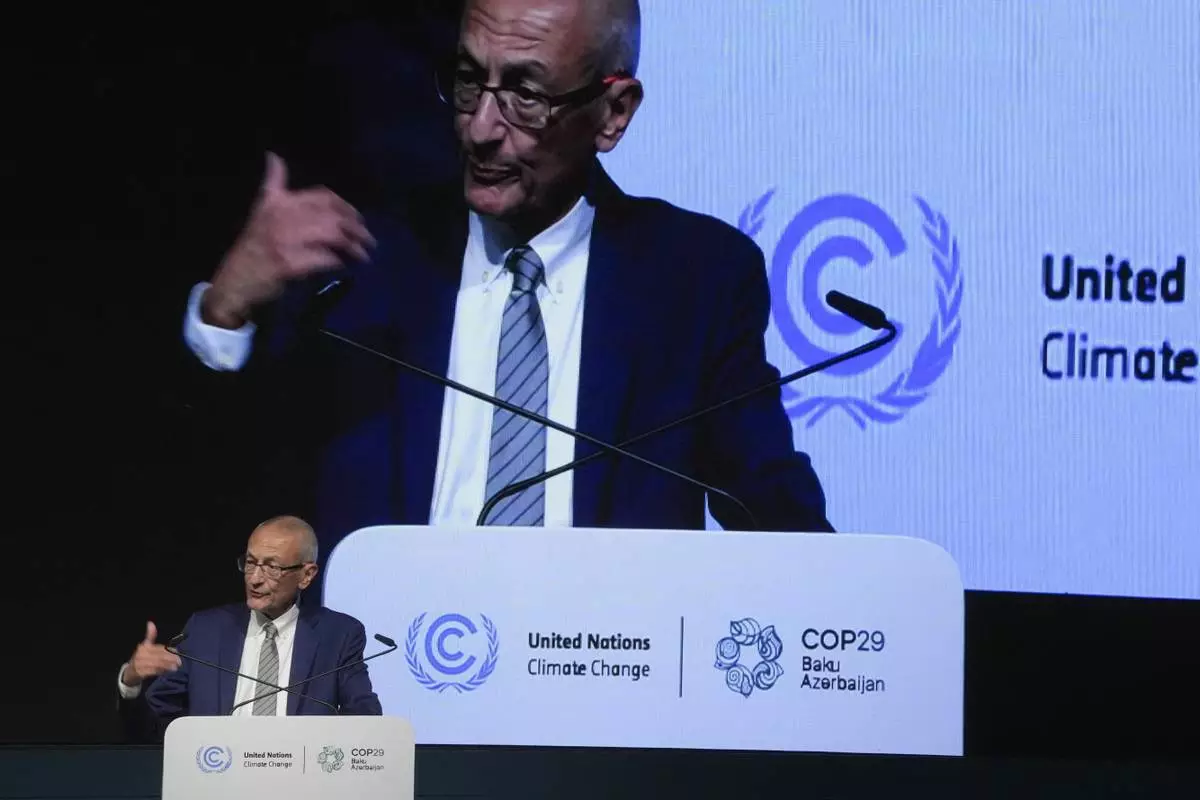
John Podesta, U.S. climate envoy, speaks during a news conference at the COP29 U.N. Climate Summit, Monday, Nov. 11, 2024, in Baku, Azerbaijan. (AP Photo/Joshua A. Bickel)


